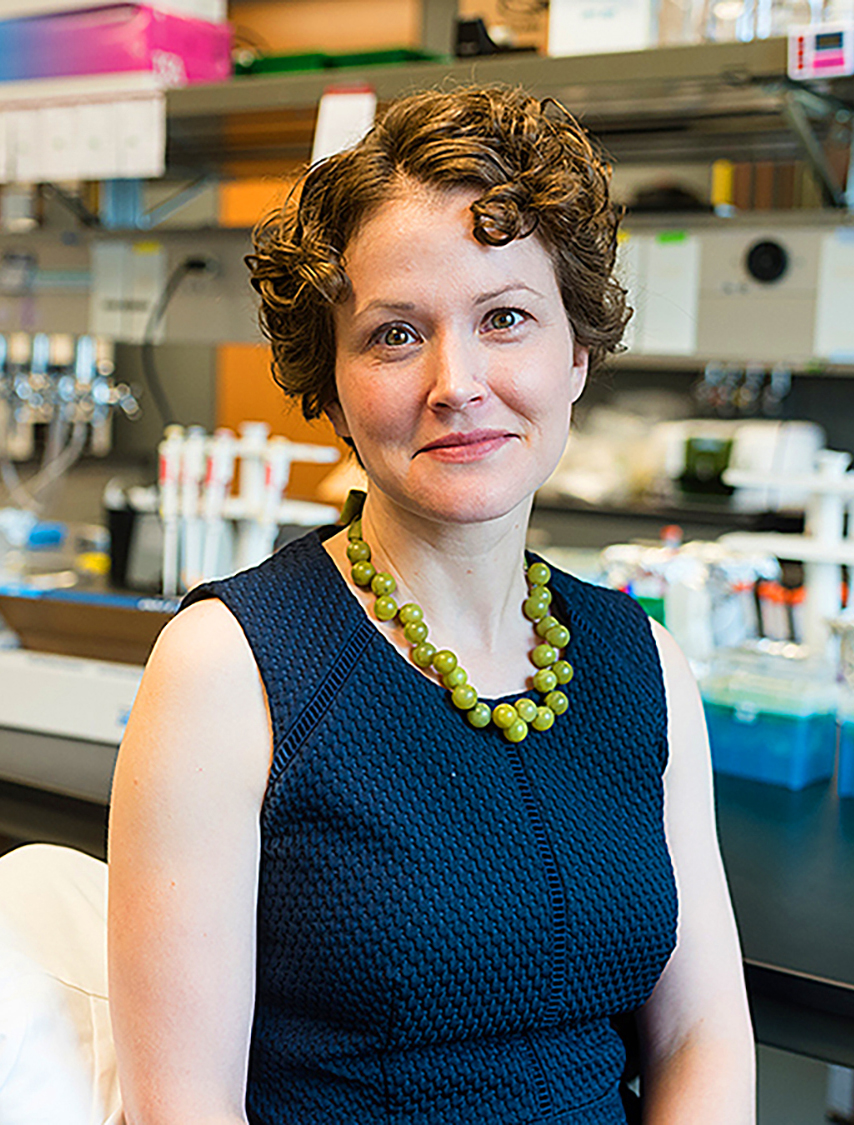
Jeanne Stachowiak, T. Brockett Hudson Professor of Chemical Engineering at the University of Texas at Austin, will give an Apex Lecture on Tuesday, Feb. 13, at 2:00 p.m. CT in 1220 MRBIII.
Her talk, “Intrinsic Disorder as an Organizing Principle for Membrane Biology and Biomaterials,” is co-sponsored by the Department of Biochemistry and the School of Engineering.
Stachowiak is recognized for a paradigm-shifting discovery in the field of membrane biophysics, demonstrating that proteins can induce membrane curvature solely through a surface-crowding mechanism. Her lab investigates the biophysical mechanisms that underlie the function of lipid membranes in cells and explores the opportunity of creating bio-inspired materials and systems that borrow these mechanisms. As part of her research, she develops new lipid membrane substrates and lipid-encapsulated systems and examines them using advanced microfluidic and fluorescence microscopy tools.
“We are excited to welcome Dr. Stachowiak to Vanderbilt to learn about her latest discoveries on cellular membranes,” said Department of Biochemistry Chair David Cortez. “Her work spans disciplines from biophysics to bioengineering and will be of great interest to scientists across the basic sciences and engineering schools.”
By reconstructing membranes from component parts, her work seeks to capture the minimal requirements of specific membrane functions. Themes of her work include understanding how proteins and lipid domains modify the fluidity, reactivity, and 3D architecture of membranes, examining how confinement within a lipid vesicle influences biochemical reactions and spatial organization of biochemical components, and using the organizational principles of the lipid membrane to build functional systems such as assays, drug carriers, and environmentally responsive materials.
Stachowiak is the 2023 recipient of the Biophysical Society’s Michael and Kate Bárány Award, which recognizes an outstanding contribution to biophysics by a person who has not achieved the rank of full professor.
About the Apex Lecture Series
There are major inflection points in biomedical discovery that create new fields, new ideas, and new opportunities to impact human health. To engage with global researchers contributing to these inflection points, the Vanderbilt School of Medicine Basic Sciences launched the Apex Lecture Series in 2023. This school-wide seminar series brings scientists who are influencing the trajectory of their fields to engage with our scientific community on campus.
Lecture Abstract
As the gateway for cellular entry and communication, the surface of the cell holds the answers to critical questions in biology and medicine, while simultaneously providing inspiration for engineered materials and systems. Recent progress in our lab and others illustrates that networks composed of proteins with a high degree of intrinsic disorder may provide the necessary flexibility to facilitate efficient assembly of functional protein complexes at membrane surfaces. In particular, we found that a flexible network of disordered proteins helps to catalyze the assembly of endocytic structures at the plasma membrane. This understanding provides new insight into the optimal design of therapeutic carriers that harness endocytosis for cellular entry. More broadly, our lab seeks to understand and mimic the ability of biological membranes to spontaneously reorganize in response to diverse cues. This remarkable capacity for self-organization, which is largely absent in man-made materials, holds great promise for the design of responsive, cell-like therapeutic systems.